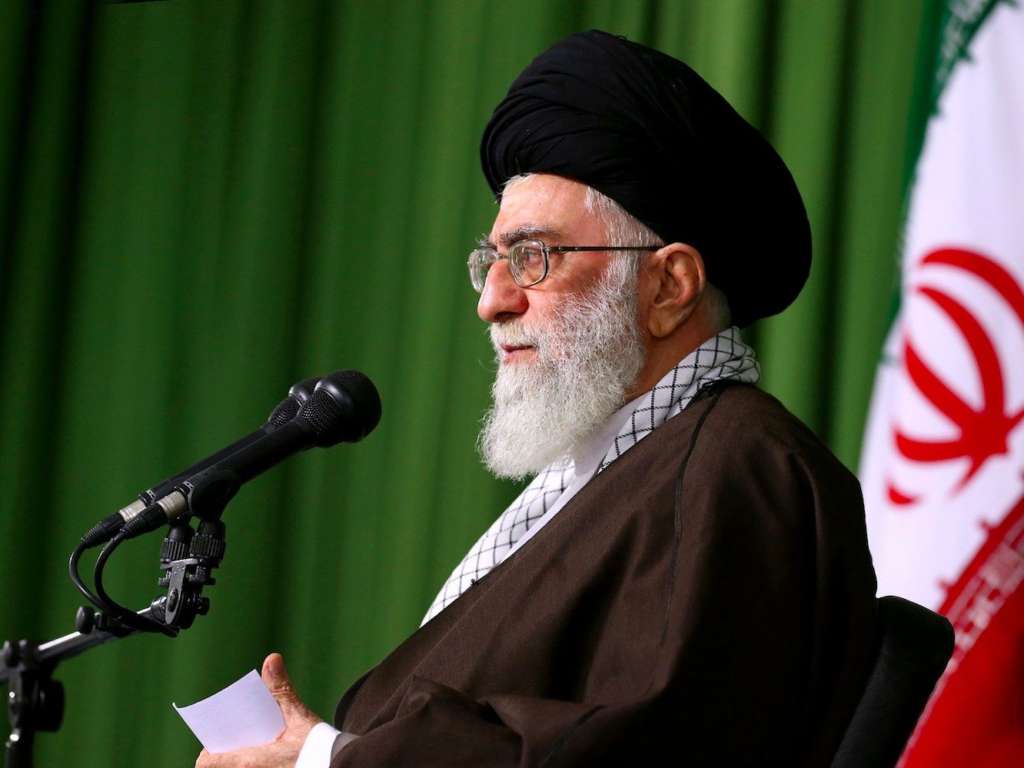The volcano of excessive salaries that exploded last month in Iran has widened on Saturday when Iran’s government launched a new campaign to remove financial officials.
Iran’s Supreme Leader Ayatollah Ali Khamenei replied on a request presented two weeks ago by First Vice-President Eshaq Jahangiri, asking the Supreme Leader to check whether sections under his supervision were possibly involved in the corruption scandal.
The crisis of salaries has driven the attention of Iranians at a time when employees are suffering from escalating economic pressures.
Yesterday, Ali Khamenei presented a letter to Jahangiri ordering all government bodies to punish those involved in the scandal of astronomical salaries, which shook the country in the last few days.
According to media reports, Khamenei’s orders stipulate that all departments and bodies under his supervision should “take the government decisions into consideration.”
Based on Iran’s Parliamentary legislation, the State Inspectorate Organization cannot monitor institutions and bodies linked to Khamenei’s office.
Khamenei’s response to Jahangiri came after 18 days of delay. Jahangiri had asked for instructions in a letter to Khamenei to have all Iranian organizations and bodies collaborate with the administration in dealing with the problem of astronomical salaries.
Khamenei had tasked Jahangiri to fight corruption and punish the wrongdoers before the explosion of the new crisis, which coincides with President Hassan Rouhani’s fourth and last year in power. Rouhani wishes to run for a second presidential term.
Yesterday, Iran’s Etemad newspaper described the sacking of high-ranking officials from the banking Iranian system as a “tsunami.” The newspaper reported that 10 high-ranking officials from economic institutions and banks were sacked or were waiting to be sacked for their involvement in the salaries scandal. Etemad quoted informed sources as saying that another 307 involved officials will soon be sacked.
The newspaper said that a committee formed by three honest officials was tasked to evaluate officials’ salaries according to the constitution and to publish results reached at this level.
Etemad said Iranians would soon learn the results of investigations into the corruption scandal that lately shook the country, more than any other corruption file since the arrival of Rouhani to the presidential seat in 2013.
In the past three days, Rouhani’s government had announced sacking the heads of five public banks, before announcing yesterday the removal of the entire executive board of the National Development Fund. Etemad newspaper described the removals as “an important step” made by Rouhani.
An Iranian news agency said that Rouhani has accepted yesterday the resignation of the managing director of the National Development Fund, after proofs showed his involvement in the astronomical salaries scandal. Iranian media reports said that members of the executive board of the National Development Fund were forced to present their resignations.
Rouhani’s government is trying to contain the repercussions of the crisis at a time when it is accused of delays in taking the quick necessary measures to solve it.
Meanwhile, several Iranian observers say that leaking information about corruption in the monetary institutions comes at a time when several authority bodies were seen struggling over power.
The scandal is also considered a new setback to Rouhani’s government amid his promises to fight corruption and improve the economic situation in the country.
The salaries scandal surfaced in May when social media accounts leaked the salaries of officials. Since, the crisis had developed and widened to constitute a new platform for attacking Rouhani. The scandal later involved new documents proving the corruption of officials.
